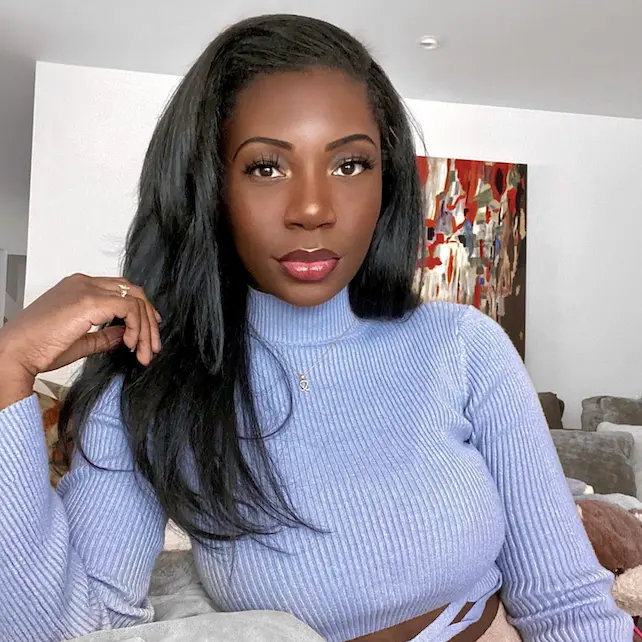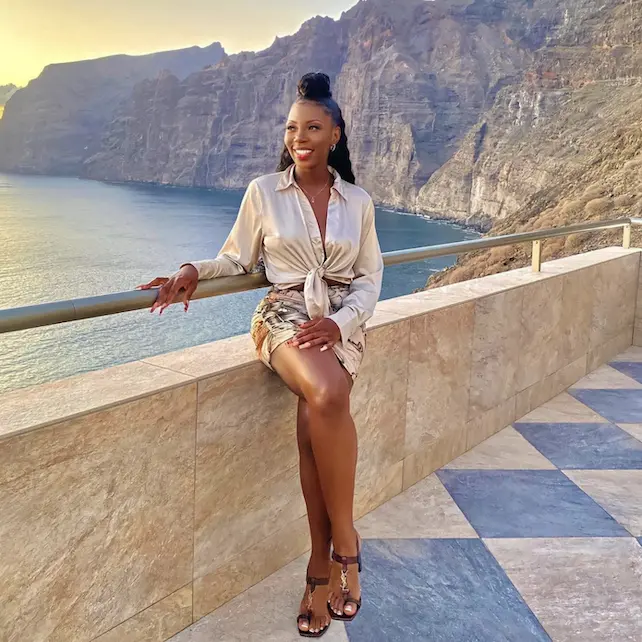
Learn With Abby, as she’s known on social, has been doing Amazon FBA for over three years now. She’s into private label, which means she orders products in bulk from China, adds her own branding, and resells them on Amazon at a markup.
Of course, she never has to see or touch the products at all; they go straight from China to one of Amazon’s warehouses, and then Amazon ships each item to the customer when they purchase from her store.
In the beginning, it’s a lot of work and takes a decent amount of money to get everything up and running. But from there, you get to take your foot off the gas and coast somewhat. You don’t have to find your own customers; Amazon’s already got ’em.
They key is picking products that are in demand, that people are actively searching for on Amazon.com each and every day.
But you have to balance that with something that’s not too terribly competitive, right? So due diligence will be critical.
From there, you have to differentiate yourself. Can you improve the design of the product? Or make the packaging more appealing? Offer it in different colors, textures, shapes, sizes? Include something complimentary with it?
And you can always take better photos, add an unboxing video, write better bullet points, include better keywords, get better reviews, and so on and so forth.
So don’t come crying to Abby saying it’s saturated. Competitive, yes, but you can still win.
Abby doesn’t share any of her own products, but says they’re in the health and household niches.
She sources all of them from Alibaba.com. There’s a ton of different manufacturers on there for almost any product you look up. You can contact them, see if they can tweak the product to your liking, order some samples, and negotiate a deal for a bulk order with the company you’re happiest with.
You’ll send them a file with your logo design and they’ll be able to print it out and slap it on your products for you.

What do her margins look like?
Abby’s selling five different products currently. Her cheapest can be mass produced by Alibaba for about $1.10 per unit; her most expensive’s a little over $5 per unit. Some of ’em are sold for as much as $19.99 on Amazon. When it’s all said and done, she pockets about $9 per sale on average.
Doesn’t sound like a lot, but when you’e doing hundreds or even thousands of sales a month, next thing ya know you’re pulling in 6-figures.
Know your numbers and follow profit, not necessarily passion, Abby suggests.
If you’d like her to mentor you, she’d like to tell you about The Savvy Seller FBA Program.
It’s 15+ hours of step-by-step video training, PDFs, checklists, a workbook, ready-to-use templates, case studies, a private Facebook group for support, and lifetime updates.
Cost is $1,997 or two installments of $1,111 spaced 30 days apart.
There’s a 14-day money back guarantee as long as you’ve consumed less than 20% of the course.
You do not have to live in the United States to join.
And it’s self-paced, so there’s no minimum weekly time requirement.
Abby’s got quite a few testimonials.
One student, a guy who goes by Femi, had this to say: “Abby’s FBA course is nothing short of outstanding. The reason I say so is because the material itself was reduced to the simplest form of instruction.”
“And I can get my questions answered anytime in the group,” he continued. “There’s also Zoom calls every week, where you can ask questions to Abby directly.”
“I went from someone who had no idea about FBA, and now I’m ready to launch my own private label product on Amazon.”